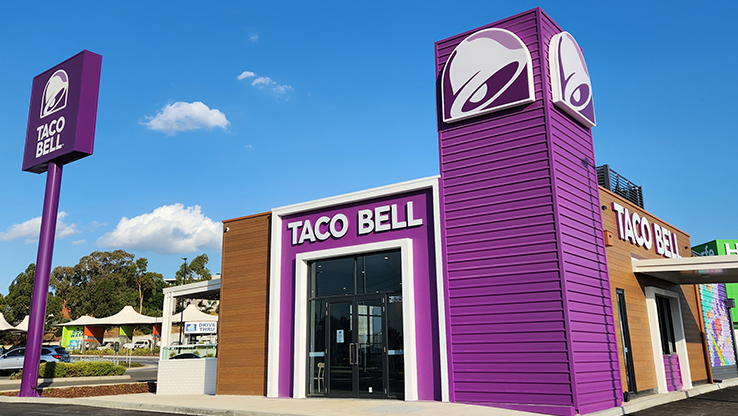Quick service restaurant operator Collins Foods will close its Mexican-themed Taco Bell business in Australia if it is unable to transfer it to another operator.
Announcing a strategic review and management restructure, the company said it had decided to ‘exit’ the business, which has 27 restaurants in Queensland, Victoria, and Western Australia.
“Discussions are currently underway with Taco Bell International (TBI) regarding a potential transition of the business to new ownership,” Collins Foods said in an ASX announcement.
“Collins Foods intends to complete the transition within the next 12 months, subject to formal terms being agreed.
“A further update will be provided, including estimated exit costs, as matters progress. If a new operator cannot be identified and/or an agreement cannot be reached, other exit options will be explored.”
Managing Director and Chief Executive Officer Xavier Simonet said in briefing the options were to transfer the business to Taco Bell International’s parent company Yum Brands (NYSE: YUM) or another operator or close the stores “step by step or in one go”.
Group Chief Finance Officer Andrew Leyden said the decision to exit the business would have a positive impact on cash flow because it did not contribute profits or cash.
“The big discussion is where do we want to allocate capital today. That’s the primary reason for our decision today,” Leyden told investors and analysts.
Taco Bell increased revenue by 11.7% to $54.4 million in the year to 28 April 2024 but lost $700,000 before interest, tax, depreciation and amortisation.
German expansion
Collins Foods, which has operated KFC restaurants in Australia for 50 years, also said it had entered into a agreement with Yum to accelerate growth in Germany, a market it believed presented a significant growth opportunity because it was underpenetrated.
The company was aiming to open between 40 and 70 new KFC restaurants in Germany over the next five years.
Yum had granted a period of exclusivity to open and operate KFC restaurants in parts of the North Rhine Westphalia and Baden-Württemberg regions where it already operated.
“Potential acquisition opportunities will be considered to support faster scaling, with Germany expected to become Collins Foods’ second strategic growth pillar,” Collins Foods said.
Netherlands changes
Collins Food said it would make a non-cash partial impairment of between $25.5 million and $32.7 million against its Netherlands restaurant portfolio, whose profitability had been affected by cost-of-living pressures, labour inflation and development constraints.
In response it would focus on operational excellence to lift same store sales and drive cost efficiencies, review and optimise the portfolio and align restaurant development plans in the short term to reflect more challenging market conditions.
“Material changes to restaurant numbers are not anticipated in the short term, with new restaurant openings broadly offsetting closures,” it said.
At the time of writing Collins Foods (ASX: CKF) were down 32 cents (3.65%) at A$8.36 (US$5.27), capitalising the company at $984.9 million.



